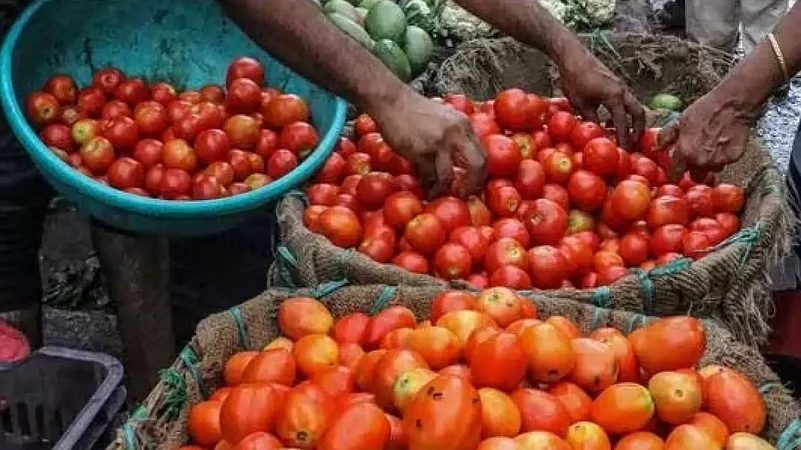Spike in prices of vegetables across India saw a new height with the retail price of tomato touching Rs 160 per kilogram in some places including Mumbai while most of the other states are sticking to the price of Rs 120 per kg. The price of ginger has turned ₹250 a kg and that of brinjals are Rs 100, according to the officials of the agriculture produce committees of several states.
It is widely believed that the scorching heatwaves in parts of the country followed by incessant spells of rains over the past fortnight are the primary reasons behind the rapid price rise.
Price hike scenario across India
Vegetable vendors from Lucknow, Delhi and Chandigarh claimed that within a week, the retail price of ginger saw a massive leap from about ₹100 a kilogram to ₹250 while price of tomato jumped from ₹40 a kilogram to ₹120 in 10 days and brinjal from ₹40 to ₹100 per kilogram in around the same time .
As per media reports, besides tomatoes, gingers and brinjals, the other vegetables have also seen a price increase between 20% and 60% over the past 10 days.
According to the Central government’s agriculture market portal, tomato prices ranged between ₹14,800 per quintal (100 kg) in Tripura to 1600 per quintal in Madhya Pradesh’s Khargone, the major source of tomato in this season. In most places, the average wholesale price for a quintal of tomato was ₹8,000 to ₹10,000.
In Chandigarh, a quintal of cauliflower was being sold for ₹4,000 while at Madhya Pradesh's Shivpuri, it was ₹1,200.
Similarly, the wholesale price of a quintal of mushrooms was ₹8,500 in Ludhiana and ₹3,500 in Palampur in Himachal.
Wholesale market officials predicted a decrease in the prices in the next 10-12 days with the arrival of fresh vegetable stocks from central and southern India; but only if rains do not ruin the supply mechanism again.
According to Harpreet Singh, a supervisor at Punjab Mandi Board in Chandigarh, the prices are likely to come down once fresh stocks from southern states start arriving.
The onus is on heatwaves and heavy rains
In Harpreet Singh's opinion, the vegetables in the plains and hills of northern India have been substantially damaged by the heatwave conditions in June followed by heavy rains due to monsoon's arrival.
“When local production stops, we get tomatoes from the hills but due to the monsoon and the sudden blockade on highways due to landslides, the supply became erratic, thus leading to a steep hike ,” he added.
It has been reported that the supply system of vegetables has been facing a lot of adversities since last four days as several parts of south-western India are facing flooding due to incessant rains.
What are the farmers/vendors saying?
As per media reports, the farmers from Uttar Pradesh are also blaming the excess heat for damaging crops as the supply from Nashik in Maharashtra and areas around Bengaluru in Karnataka has been less.
According to the wholesale traders of Delhi's fruit and vegetable markets, the arrival of vegetables in the capital’s biggest market has fallen by 40%-50%, leading to higher wholesale prices.
“Because of the high prices, the offtake of higher priced vegetables such as tomato and lemon is also less”, they said.
“The huge difference in the prices is because transportation costs are very high. If the commodity is in short supply, the profit margin per quintal is higher. More the traders in between the source and final destination market, the higher e the difference,” said a senior government official.
What measures have been taken?
In a bid to reduce the price burden, several state governments including Tamil Nadu and Karnataka have resorted to fair price shops for selling vegetables at a subsidised rates;
Tomato, for instance, is being sold at ₹60 per kilogram over there.
Meanwhile, the Tamil Nadu government has decided to sell only one kilogram of tomato per person.
In Karnataka, the state government has asked PDS shop-owners to sell vegetables at the lowest price possible.





















